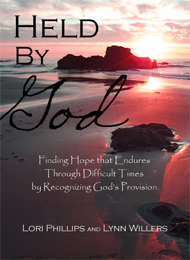 Today I attended the memorial service for one of my colleagues who passed away unexpectedly. The occasion held all of the standard ritual that accompanies a police service. To the sound of bagpipes, a sea of saluting deputies and officers bid farewell to one of their own. Death is always tragic, but even more so when it happens suddenly, and grief is thrust upon us without warning.
Today I attended the memorial service for one of my colleagues who passed away unexpectedly. The occasion held all of the standard ritual that accompanies a police service. To the sound of bagpipes, a sea of saluting deputies and officers bid farewell to one of their own. Death is always tragic, but even more so when it happens suddenly, and grief is thrust upon us without warning.
While people deal with grief in different ways, I’ve noticed that some are completely devastated by their pain, while others have a certain peace despite their suffering. In the weeks following my mom’s death, we’d visit the cemetery fairly often. On several occasions we’d meet a woman whose son was buried nearby. He was just a teenager who’d recently died in a car accident. The depth of the woman’s grief was evident as she spent hours sitting in the cemetery. She was clearly not eating, and every time we saw her she looked worse. Her son’s gravesite had become a shrine to his memory and for many months, sitting on his small plot of lawn was her whole life.
So why do some fall apart under the crushing pain of grief while others endure? I think it comes back to one word: hope.
In 1873, a man by the name of Horatio Spafford was trying to rally after two devastating events. Three years earlier, he and his wife had lost their only son to Scarlet Fever. Shortly thereafter, the Great Chicago Fire destroyed properties he owned, which ruined him financially. Despite this the family was scheduled to travel to Europe. Mr. Spafford had to remain behind to attend to some business matters, but he assured his wife and daughters that he would accompany them as soon as possible. While crossing the Atlantic, the ship collided with another ship. Several passengers drowned including Mr. Spafford’s four daughters. His wife sent a telegram back to America with the words “Saved alone.” As he traveled to meet his wife, the ship passed over the area where his four daughters perished. In his grief, Horatio Spafford penned the following words.
When peace, like a river, attendeth my way, When sorrows like sea billows roll; Whatever my lot, Thou has taught me to say, It is well, it is well, with my soul.
Though Satan should buffet, though trials should come, Let this blest assurance control, That Christ has regarded my helpless estate, And hath shed His own blood for my soul.
My sin, oh, the bliss of this glorious thought! My sin, not in part but the whole, Is nailed to the cross, and I bear it no more, Praise the Lord, praise the Lord, O my soul!
For me, be it Christ, be it Christ hence to live: If Jordan above me shall roll, No pang shall be mine, for in death as in life Thou wilt whisper Thy peace to my soul.
But, Lord, ‘tis for Thee, for Thy coming we wait, The sky, not the grave, is our goal; Oh trump of the angel! Oh voice of the Lord! Blessèd hope, blessèd rest of my soul!
And Lord, haste the day when my faith shall be sight, The clouds be rolled back as a scroll; The trump shall resound, and the Lord shall descend, Even so, it is well with my soul.
It is well, with my soul,
It is well, with my soul,
It is well, it is well, with my soul.
Horatio Spafford was sustained in his grief because he knew he would be reunited with his children one day. He could write these lyrics because despite his grieving heart, he understood his sins to be nailed to the cross of Christ, and therefore looked forward to the day when Jesus would return to the earth and take him home to heaven. This hope is what gives us peace in the midst of grief.
…weeping may endure for a night, but joy cometh in the morning. Psalms 30:5b, KJV
The struggle may be difficult and the pain may be devastating; but because I have Jesus, it is well with my soul.
On the journey toward Home,












{ 2 comments… read them below or add one }
This has always been a favorite story of mine and each time I hear it, it strikes me anew just how much faith and endurance one can have in Christ, no matter the circumstances thrown our way. Thanks for posting this, as well as a slice of your own journey!
Thanks Rebecca!